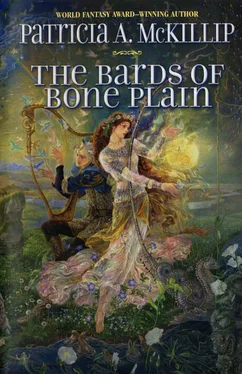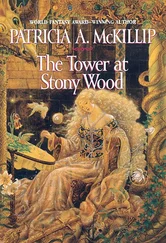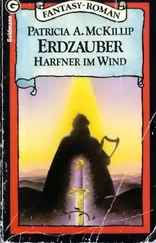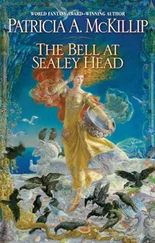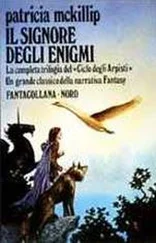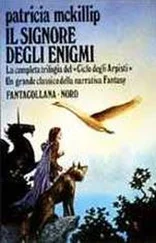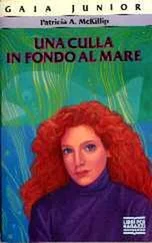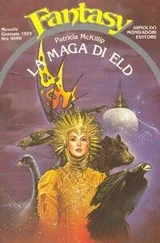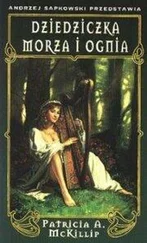“Right. You’ll wait until my mouth is full and I can’t sing a note and you’ll call victory while I’m trying to swallow.”
Welkin shrugged. “Who’s to notice? No one’s paying attention but him.”
That seemed true enough. Everyone had wandered off to listen to the last of the court bards, maybe, but for the tall old man standing with his back to the moon. He was cloaked from head to heel. Nairn saw a flutter of hair white as moonlight out of the hood he wore, but nothing of his face.
Then his vision shifted, became clearer in the deceptive light.
“That’s not a man,” he said. “Just one of the standing stones.”
“You’re in poor shape if you can’t tell stone from man. We’ve been playing for a night and a day and about to begin another night. How much longer can you keep up with me? I’ve a long, long road behind me that crisscrossed all over this land. You’ve gone a mile or so from your pigsty.”
“Farther than that,” Nairn retorted. “I’m still standing. And you’re the one who brought up the words. Food. Ale. You’re the one who needs them.” He nodded at the stone. “Maybe he’ll fetch them for you, if you ask.”
Nairn gave his gravelly laugh. “I could make him dance. I could make him sing.”
“He’s stone.”
“I could make him tell our fortunes, which of us is still on his feet and playing by the dawn. I’ll make you a wager: whichever of us makes him speak goes down and charms her back up here with her bowl of stew.”
“He’s stone. And you’ll cheat.”
“You’re just afraid of facing her.”
“What ‘her’? She’s just something you’ve conjured up with your harp strings. I’m not wasting my fingers or my breath trying to make a stone speak. I intend to be standing right here, come the dawn, and you’ll be wondering where the magic in your harp went.”
“Is that so.”
“Yes, old man,” he said between his teeth. “I’ll find the way to make it so.”
Welkin laughed.
The sky darkened; stars gathered thick as the crowd on the plain, more and more of them pushing out to listen. Nairn played and sang to them, for they were all he saw. Even the night fires across the plain had been neglected, except for the one still burning beneath the great cauldron. No one else seemed to be eating from it either. They were all gathered somewhere in the dark, he guessed, somewhere beyond time, silent and entranced, waiting to see which of them would come to the end of songs and put down his harp, and finally feel the exhaustion, the torn fingers, the throat so raw and swollen nothing but a toad-croak would ever come creeping out of it again.
Even then, as the wheel of stars turned above them, he heard Welkin’s playing strengthen, gather energy from the night, at once so unfalteringly wild and so precise that the question nobody could answer welled again through Nairn:
Who are you?
The old harper’s eyes caught starlight, glinted at him. He heard Declan’s voice again, his only answer:
The magic is in the harp.
The strings played themselves, maybe; Welkin had only to stay on his feet and remember the verses. It didn’t make a great deal of sense, but nothing did, not the cauldron full of food that no one ate, the crowd that never danced or sang with the bards, or even spoke, the only one visible even in the dark either a hooded man or a stone, either way as silent as the rest.
Something prickled over Nairn then, like a chill breath from the midsummer moon. His fingers went cold; his eyes grew swollen and dry, too dry even to blink, look away from what he recognized, must have known long before, in some part of his mind that was not busy trying to overwhelm the bard beside him with his brilliance.
I know this song, he thought, but not of the one under his fingers. The one in the plain in front of him. The cauldron. The stone. The tower of night around him, stars endlessly turning, turning. The ancient plain itself, everyone on it as mute and ephemeral as ghosts.
Bone Plain.
He felt a sudden, fierce shock of exultation and dread. It was what he wanted, he knew then: an end to the never-ending competition. The tower appeared first in his memory’s eye: rooted close to where he and Welkin stood, its stones coiling endlessly upward into the stars. He had watched it appear once before in all his innocence and ignorance, before he knew it had a name. Now he knew it. He named it, gazing at it with his heart’s knowing eye, willing it to appear, build itself note by note, stone by stone, spiraling out of him, a stone for every note, a swirl of stars crowning its ascent into the night. It was what they both wanted, he and Welkin: the only place where they could finally be judged.
The Turning Tower.
He dreamed it as he played. In another world, a harper with sweat dripping onto his harp strings, his muscles burning, fingers cracked and bleeding, wrenched yet one more song out of himself. In his dream, the massive tower grew to engulf the plain, the campfires burning on it scarcely bigger than the flickering stars within the stones. Grave and kindly voices filled it, stopped the interminable competition. The Trials and the Terrors were simple matters compared to the song he was dragging out of his anklebones, his ear bones. The voices commanded; he did as he was told; he accepted the justice demanded in the ancient lines of poetry; at last he could rest.
He only had to open the tower door ...
He could see it: a paler oblong of stone in the dark wall, the color of the standing stones. Twig-words ran across the lintel stone; a single word glowed in the middle of the door: a circle containing an endless spiral that started in the center and whorled around itself to merge with the outer ring and begin its backward spiral. The word teased at Nairn. He knew it; he did not know it. Declan had not taught it to him, but his fingers knew it. They kept trying to play it like a song, pull it out of the strings, shape it, say it in ways his weary brain could not begin to form. He felt Welkin’s eyes on him, as though he heard the changes in Nairn’s music, the odd patterns, the unexpected rhythms that drove him. It was the door latch, that word. It was the lock and the bar and the turning key. Sweat stung his eyes, blinding him; he shook it away, felt the limp, wet strands of his hair. They had played for a night and a day, and now began another night, and little had passed his lips except his own sweat. It didn’t matter. Not even Welkin mattered anymore. Only that word, drawn by fire, it seemed, on the face of the door.
He closed his eyes, let it fill his mind, whatever it was, and let his fingers speak. He felt it before he heard it: a wild, jarring sound like a string breaking, or a small animal crying out in sudden pain. He opened his eyes again, startled.
He heard his own voice, then, loosed in a ragged shout of pure terror. His fingers froze.
Death, the word on the door said, and it surrounded him: ghost after ghost pulling themselves out of their bones laid to rest on slabs of creamy yellow stone and long picked clean by time. The wraiths wore their memories of wealth and honor, fine robes and mantels of many colors, adorned with soft fur, intricate embroidery, buttons of carved bone. Their armbands and collars and hairpins were fashioned of silver and gold. Precious stones gleamed on the instruments they carried; other instruments encased in fine leather leaned against the burial pallets. The ghosts were the oldest bards of the plain, Nairn guessed, looking much as they might have the day before they died, except for their eyes. All were empty and black as skull sockets, swimming with the reflections of fire from the single torch beside the open door.
“Welcome.”
He was greeted in the language he had heard Welkin speak. This time he understood it. He backed a step, not wanting, in any language, to be welcomed into the company of the dead. But he was, he reminded himself, where he had wished to be: inside the lines of the oldest poem in the realm.
Читать дальше
